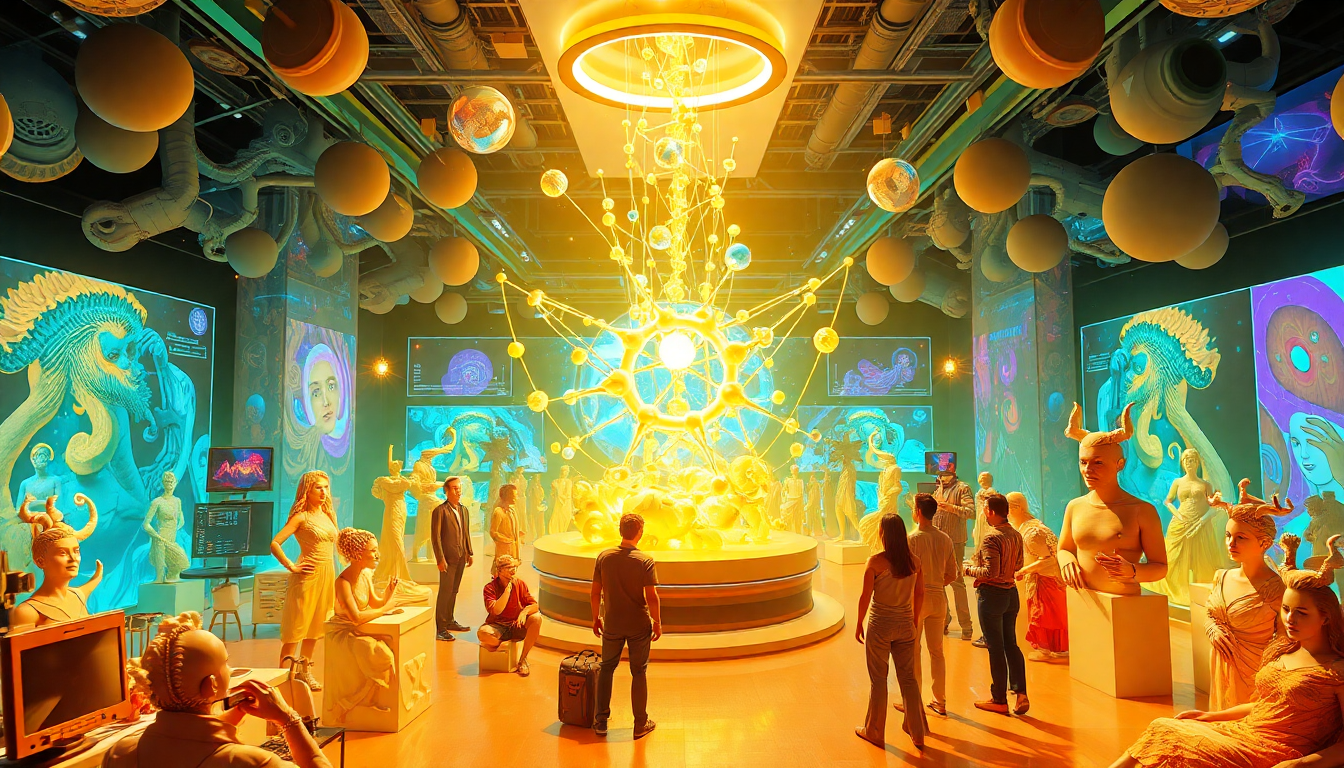Empowering Artists and Creativity with AI: The Revolutionary Role of Creative Object Models
In the ever-evolving landscape of digital art and creativity, a groundbreaking technology is reshaping the way artists create, collaborate, and monetize their work. Creative Object Models (COMs) are emerging as powerful tools that not only amplify artistic expression but also secure the integrity and legacy of creators. This article delves into the transformative potential of COMs, exploring how they're revolutionizing art creation, empowering artists like Maya and Kai, and fostering a new era of creative innovation.
The Genesis of Creative Object Models
Bridging AI and Artistic Expression
Creative Object Models represent a paradigm shift in the intersection of artificial intelligence and artistic creation. These sophisticated AI models are trained on the unique styles, techniques, and creative approaches of individual artists, effectively capturing the essence of their artistic vision. Unlike generic AI art generators, COMs are personalized co-pilots that work in harmony with an artist's creative process.
From Art to Algorithm: The Creation of COMs
The journey from artwork to COM begins with each piece an artist creates. These individual creations, termed "Creative Objects," serve as the foundation for building a comprehensive model of the artist's style. Through advanced machine learning techniques, these objects are analyzed and synthesized into a COM, which can then generate new artworks that faithfully represent the artist's unique aesthetic and approach.
Empowering Artists Across the Spectrum
Democratizing Advanced Techniques
One of the most significant impacts of COMs is their ability to democratize advanced artistic techniques. Aspiring artists like Maya can now access and learn from the creative approaches of established artists like Kai. This not only accelerates the learning curve but also opens up new avenues for artistic experimentation and growth.
Blending Styles and Pushing Boundaries
COMs offer unprecedented flexibility in artistic creation. Artists can blend multiple COMs to create entirely new styles, pushing the boundaries of what's possible in digital art. This fusion of different artistic approaches leads to the emergence of novel aesthetics and techniques that might never have been conceived through traditional methods alone.
Preserving Artistic Integrity and Ensuring Fair Compensation
In an era where digital art can be easily replicated and distributed without proper attribution, COMs provide a solution for preserving artistic integrity. By encoding an artist's style into a secure, controllable model, COMs ensure that the original creator's work is respected and properly credited. Moreover, the system built around COMs facilitates fair compensation through royalties and profit-sharing mechanisms, creating a sustainable ecosystem for artists.
Case Study: Maya's Creative Journey with COMs
Maya, an aspiring NFT artist, serves as a perfect example of how COMs can transform an artist's career. Initially inspired by Kai's groundbreaking 3D creations, Maya felt limited by her own tools and skills. However, with access to Kai's COM, she was able to:
- Generate new artworks inspired by Kai's style while infusing her own unique vision
- Blend Kai's COM with other artists' models to create entirely new aesthetic combinations
- Develop her own COM, capturing her evolving style and offering it to other creators
- Monetize her creations through NFT collections and brand collaborations, while ensuring fair compensation for all contributing artists
This journey not only expanded Maya's creative capabilities but also provided her with new avenues for income and artistic growth.
The Broader Impact on the Creative Economy
Fostering a Collaborative Creative Ecosystem
COMs are not just tools for individual artists; they're catalysts for a more collaborative and interconnected creative ecosystem. By allowing artists to share and combine their creative approaches, COMs encourage cross-pollination of ideas and styles across different artistic disciplines and cultures.
Redefining Content Creation and Consumption
The adaptability of COMs extends beyond visual arts. They have the potential to revolutionize content creation across various media:
- Literature: Generating adaptive storytelling that evolves based on reader preferences
- Music: Creating personalized tracks that modify in real-time to listener emotions
- Film: Producing interactive movies with storylines that adapt to viewer choices
This dynamic content creation paradigm promises to transform how we consume and interact with art and media.
Ethical Considerations and Future Challenges
As with any transformative technology, the rise of COMs brings forth important ethical considerations. Issues of copyright, the definition of originality, and the potential for misuse must be carefully addressed. The creative community, along with policymakers and technologists, must work together to establish frameworks that protect artists' rights while fostering innovation.
Conclusion: A New Horizon for Artistic Creation
Creative Object Models represent more than just a technological advancement; they symbolize a fundamental shift in how we perceive and engage with creativity. By empowering artists, ensuring fair compensation, and opening up new realms of artistic possibility, COMs are paving the way for a more vibrant, inclusive, and innovative creative landscape.
As we stand on the brink of this artistic revolution, the potential seems limitless. From aspiring creators like Maya to established artists like Kai, COMs offer tools to amplify human creativity, preserve artistic legacies, and forge new paths in the digital art world. As this technology continues to evolve, it promises to unlock a universe of creative possibilities, propelling us into an AI-powered future where art knows no bounds.
To be part of this exciting journey and shape the future of digital creativity, visit www.createprotocol.org and join the artistic revolution today.
